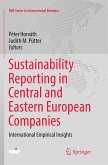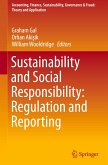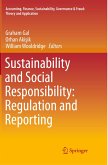Environmental and sustainability reporting involves nonfinancial and financial indicators of an organization's impact on environmental, economic, and social dimensions of their operations. As stakeholders (e.g., investors, consumers, governments, donors, employees) of organizations demand more transparency from profit and not-for-profit entities, environmental and sustainability reporting is a means to address this demand. Public interest in the environmental and social impacts of corporations began in the 1960s and 1970s. Protests against the Vietnam War, concern for the environment, and opposition to South African apartheid were some reasons that investors reacted to more than companies' reported profits. A number of investors actively avoided manufacturers of weapons and "sin" products (tobacco, alcohol, and gambling).
The emergence of socially responsible investing (SRI) funds provided investors with opportunities to invest in companies that had positive impacts on society. Although SRI was initially thought to be a short-lived fad, it still thrives today. The globalization of corporations and widely publicized corporate misdeeds (e.g., Exxon Valdez oil spill, Nike's child labor problems, Enron's accounting fraud) increased public scrutiny of corporate behavior. Public pressure for more corporate transparency is greater than ever. In an effort to respond to this pressure, companies are reporting their environmental, economic, and social impacts. Sustainability reporting benefits both internal and external users of the information. Internal users are in a position to better manage the company's resources while external users can assess the company's sustainable development and long term prospects.
This book is intended for MBA students, executives, and managers who can discover the internal and external benefits of environmental and sustainability reporting, the basics of reporting, and the reaction of the investment community. The reader will benefit from this introduction to environmental and sustainability reporting to better assess its value for his or her own organization.
Hinweis: Dieser Artikel kann nur an eine deutsche Lieferadresse ausgeliefert werden.
The emergence of socially responsible investing (SRI) funds provided investors with opportunities to invest in companies that had positive impacts on society. Although SRI was initially thought to be a short-lived fad, it still thrives today. The globalization of corporations and widely publicized corporate misdeeds (e.g., Exxon Valdez oil spill, Nike's child labor problems, Enron's accounting fraud) increased public scrutiny of corporate behavior. Public pressure for more corporate transparency is greater than ever. In an effort to respond to this pressure, companies are reporting their environmental, economic, and social impacts. Sustainability reporting benefits both internal and external users of the information. Internal users are in a position to better manage the company's resources while external users can assess the company's sustainable development and long term prospects.
This book is intended for MBA students, executives, and managers who can discover the internal and external benefits of environmental and sustainability reporting, the basics of reporting, and the reaction of the investment community. The reader will benefit from this introduction to environmental and sustainability reporting to better assess its value for his or her own organization.
Hinweis: Dieser Artikel kann nur an eine deutsche Lieferadresse ausgeliefert werden.








